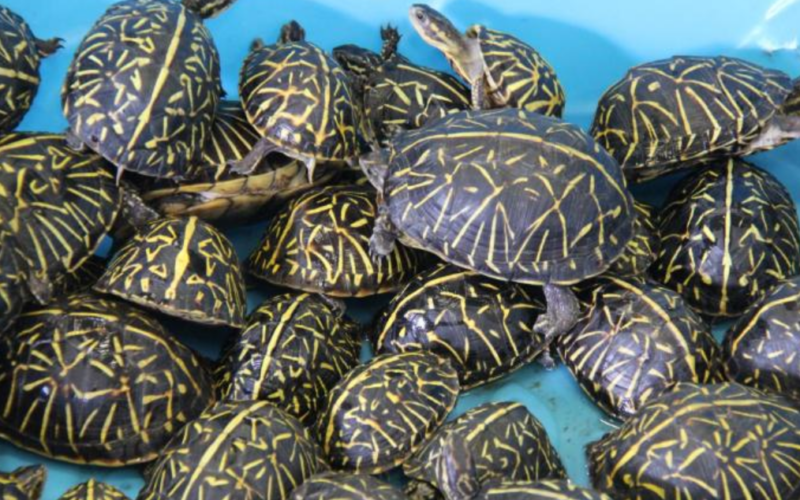Customs officials at Lima’s airport in Peru have intercepted a major trafficking attempt, seizing 4,001 live turtles destined for Indonesia. The turtles, valued for their eggs and meat in certain regions, were discovered with inaccurate export documentation, misidentifying species and age. The reptiles, including South American river turtles and Taricaya turtles, are now under the care of an authorized breeding center in Lima while officials determine their final destination.
Peruvian customs officials at Lima airport successfully thwarted an attempt to traffic thousands of live turtles bound for Indonesia. The delicacy value of the turtles’ eggs and meat in some parts of the world makes them a target for illegal trade. The trafficking operation was exposed when authorities found discrepancies in the export papers, including misidentification of species and inaccurate age details for the animals.
The intercepted turtles, totaling 4,001, have been relocated to an authorized breeding center in Lima. Officials confirm that the reptiles will be cared for at the center until a decision is made regarding their final destination. Despite the challenging circumstances, no fatalities among the turtles have been reported so far.
Among the seized turtles, over 400 were identified as South American river turtles (Podocnemis expansa), and their “legal origin could not be determined,” according to environmental officers. The International Union of Conservation of Nature (IUCN) has recommended reclassifying this species as “critically endangered” due to declining numbers. The remaining turtles are Taricaya turtles (Podocnemis unifilis), commonly known as yellow-spotted river turtles. However, their estimated age contradicted the information provided in the export paperwork.
Peru’s National Forestry and Wildlife Service (Serfor) highlighted the ongoing issue of illegal wildlife trafficking, with monkeys, turtles, and parrots being among the most sought-after animals for traffickers. The interception of this turtle trafficking attempt underscores the importance of international collaboration and stringent measures to combat the illegal trade of endangered species.
The successful interception of thousands of turtles at Lima’s airport represents a crucial step in combating illegal wildlife trafficking. Peruvian authorities, particularly the National Forestry and Wildlife Service (Serfor), continue to play a vital role in rescuing animals from traffickers. The incident emphasizes the need for ongoing efforts to address and deter the illegal trade of endangered species, safeguarding global biodiversity.








